As a blind woman who worked as a street performer for eleven years, I have experienced many wonderful moments with the public. I’ve also experienced some awkward, painful and infuriating ones. The ministrations of faith healers were particularly aggravating. Before writing this piece, I sought comments from other blind people. Their opinions are as diverse as blind people themselves. No one wanted to be named. Here are pictures from a life that I view as worthy of celebration, not healing.
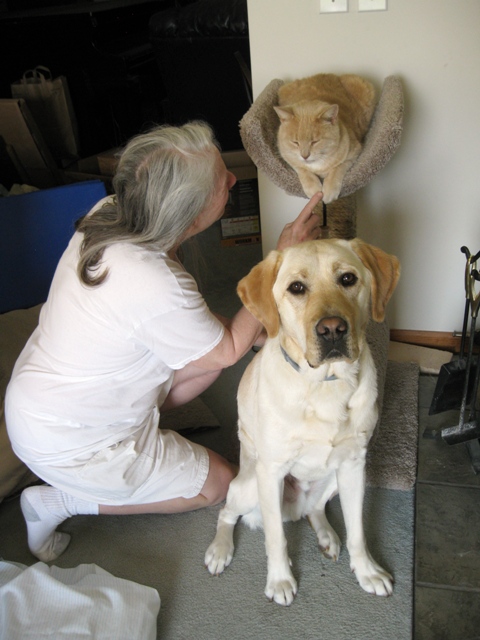
Disclaimer
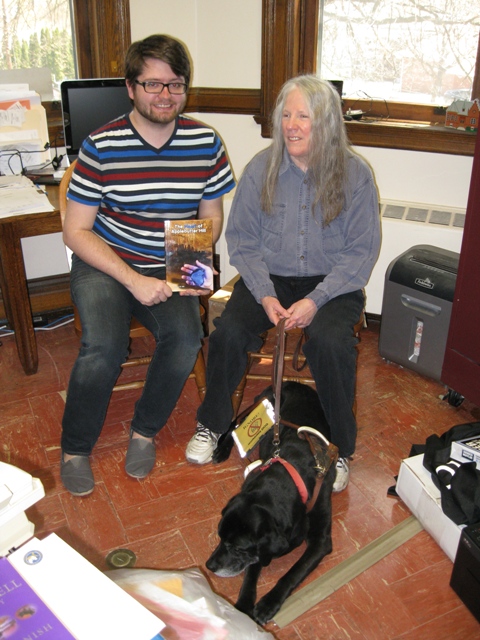
I was born legally but not totally blind in the ‘50s, when being blind was less acceptable than it is today. I was raised in a working-class, Christian family, where the undercurrents of belief suggested two seemingly contradictory perspectives. First, I got the impression that my parents viewed my blindness as a punishment. Second, there was some element of the healing power of Jesus.
Neither of these perspectives was spelled out. I just picked them up the way children get their ideas about where they fit into the worlds of family, neighborhood and church. My spiritual life has undergone many twists and turns since then.
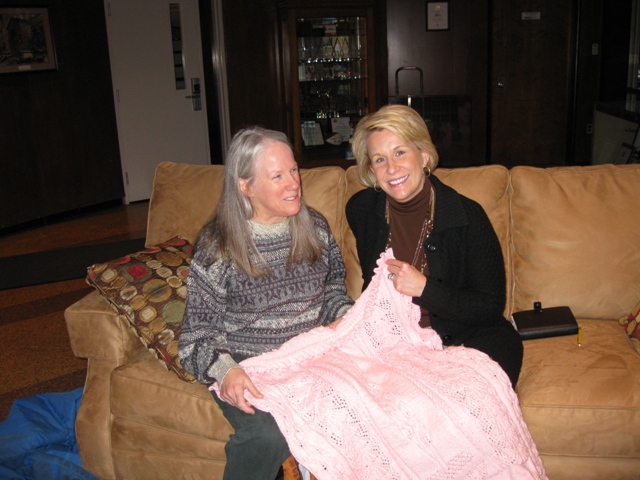
Evolution of a Perspective
My school days were filled with bullying. Some teachers thought I shouldn’t be in public school, while others were sure I was faking my vision loss. My dreams of doing something with music, fostered by an early spiritual experience, were evaporating in the light of irrefutable evidence that I wasn’t qualified.
My voice was good enough for the second grade chorus, but I couldn’t get the hang of the risers in less than thirty seconds and was dismissed. At eleven, I suspected that I had a mental deficiency causing me to block my own vision. And, not for the last time, I considered suicide.
By twelve, my piano sheet music was too complicated to memorize using a bright light and my deteriorating vision. Had God changed His mind? Or, perhaps, I needed to do something else first — get normal sight. It was obviously impossible to be successful without it.
Years before hearing televangelists, I somehow knew I had to believe it would happen. Every morning for months, before I opened my eyes, I thanked God for restoring my sight, imagining the bright and detailed world that awaited me. My eyes, however, opened to dimness and confusion.
Progress and Compromise
At fourteen, I was devastated without music in my life. I asked for and received a guitar. Though I was too shy to share them, I started writing songs, beginning the inexorable link in my life between music and language.
In Junior High and High School, the bullying became more physical. The increase in work coupled with declining central vision necessitated a prioritizing of my work — literature and science were in; history and math out.
What About Braille?
Braille and recorded books were never discussed. I was legally blind in a world where it was more important to read and navigate with your eyes, regardless of how many mistakes you made, how much time it took, how sick you got or how many other things fell by the wayside, than to learn nonvisual skills.
The overt bullying stopped when I entered college. Nevertheless, I had lost the reading vision in my better eye that summer and was ill-equipped to take full advantage of the college experience. For the first time, however, I used recorded books and readers.
What Provoked This Dredging Up of Childhood Misfortunes?

I use LinkedIn to promote my novel, The Heart of Applebutter Hill, as well as vision loss issues. I have over 5,000 connections and a rather inclusive approach to invitations. If someone invites me to connect, I usually accept. My profile makes it clear that I am blind, and I assume they’ve read it. Though they may be sighted, their family and friends might include someone who is dealing with vision loss.
One of my connections wrote the following message to me.
Hi Donna, as you read this message instantly receive your sites in Jesus name. Amen.
Reawakening the Dream

After graduating from college, I tried to make up the deficit. I trained with my first guide dog and learned Braille. I would pursue my dream of being a self-supporting musician — initially, as a street performer.
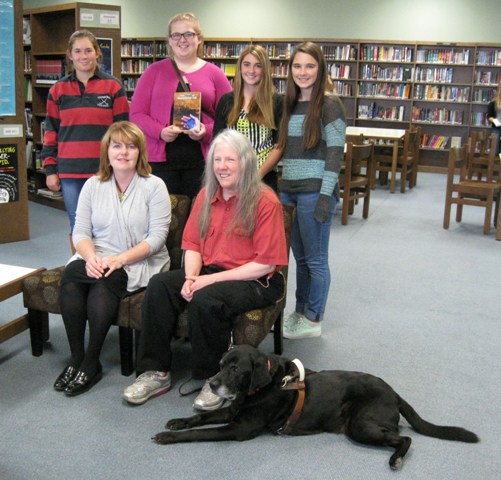
I had my own apartment, kept an organic garden complete with a compost pile, baked whole grain bread and made everything from soup and spaghetti sauce to hummus, pesto and spanakopita. I started performing at schools, churches and other venues. I wanted my audiences to have a comfortable experience with a blind person and learn a bit about how we do things. I released the first two of my three albums — Rainbow Colors and Harvest.
“If I had healed you back then,” said the voice I thought of as God, “You would have never known that blindness didn’t have to limit you.”
A Street Performer’s Experience
Between ’78 and ’90, I worked regularly as a street performer in Philadelphia’s Suburban Station, a center city train station serving commuters from the five-county area. I also had a permit to perform at Penn’s Landing on the Delaware River. I sang mostly original material and met people from all walks of life who shared their joys and sorrows with me. It was a transformative experience.
Of course there were unpleasantries along the way. I was robbed twice. A classical guitarist, who believed I was in his spot, threatened to break my fingers. And, a deranged soul tried to spray me with Lysol … to disinfect me from AIDS. Well, you get the idea.
Some people stopped to tell me about the healing power of Jesus. I tried politeness, but the rage and humiliation boiling inside me occasionally burst through with comments like, “What makes you think I want to be healed?.” Why couldn’t they accept me the way I am? Did they really think that blindness was the worst part of my life?
When I performed at local folk clubs, however, the story I told most often, which always got a laugh, involved a group of non-Christian zealots. They explained that all I needed to do to get my sight restored was to eat nothing but raw foods for the rest of my life. I patiently listened and then said dryly, “I don’t think it would be worth it.”
Back to My Overzealous LinkedIn Connection
His message made me astonishingly angry. I wanted to explode. But, it would have been counterproductive. I considered ignoring the comment, but the intervening decades since early adulthood had left me at the point where I could say this.
I hope you will not be offended by this response. I long ago stopped asking Jesus to restore my sight. It seems rather selfish to have my sight restored when so many others remain blind, and others still, who currently have sight, will lose their sight without knowing that life without sight can — with some adaptive equipment and skills — be happy, productive and fulfilling. My purpose on earth is to spread this information, not to run from the challenges and opportunities that blindness brings.
Other Opinions & Issues
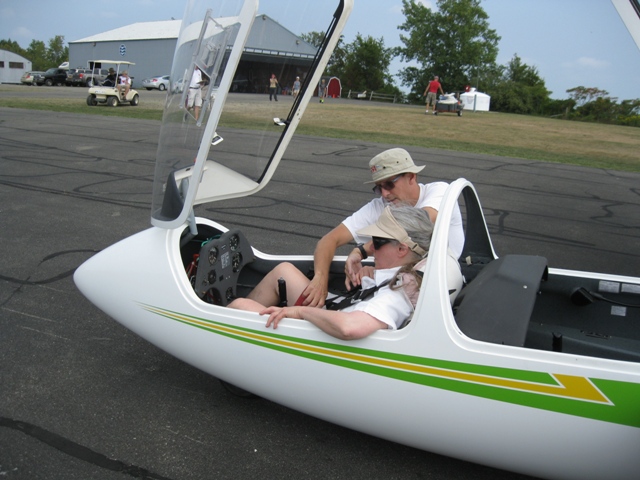
Somehow, I still feel badly about this response. Was I being too prideful? One blind gentleman said, “What if it works?” Several said they thought it was their responsibility to encourage others in their faith. Some confessed that these encounters made them feel horrible or angry.
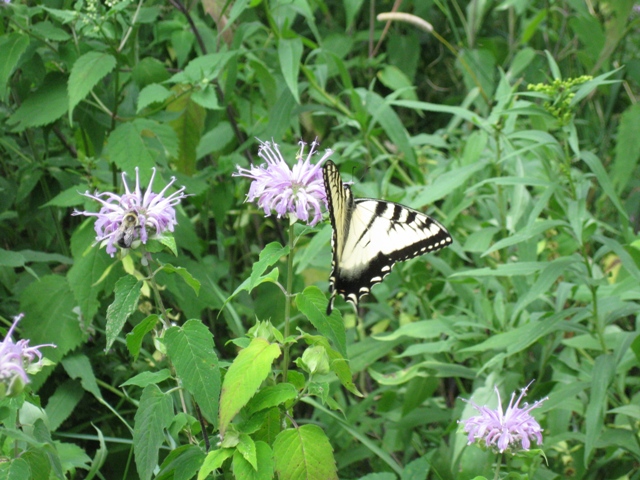
One woman, an urban dweller, expressed the idea that it boiled down to “others wishing that you, basically, not be you.”
I’ve had perhaps a dozen experiences in my lifetime with faith healing zealots (all young women) approaching me, all of whom asked if they could pray over me. Depending on my mood, I either allowed it, with a mindset of “Oh, this will make them feel better,” or, “No, thank you, but I appreciate your offer.” Only in one case did the zealot attach my blindness to sin, and it didn’t mean anything to me.
A Sign from a Fellow Blind Author
With so many of my blind brothers and sisters being so uncomfortable with this topic, I had misgivings about going forward with this piece. I’ve been reading Outside Myself, a young adult novel by Kristen Witucki. The story is told by two blind people, who meet through a library for the blind. In some ways, they couldn’t be more different. Imagine my surprise when I came across a scene where the twelve-year-old blind protagonist had an experience with faith healing.
I’ll have more to say about this excellent book in the months to come, when I’ve had an opportunity to truly digest it. But, for now, I will leave you with a couple of links and my assurance that Witucki tackles the issue of acceptance with an abundance of depth, bredth and sensitivity.
Outside Myself by Kristen Witucki
Amazon
https://www.amazon.com/Outside-Myself-Kristen-Witucki/dp/1942545991
Accessible Versions
Outside Myself is also available in accessible formats for readers with print disabilities through Bookshare and NLS (the National Library Service for the Blind & Physically Handicapped).

Donna, I think you’ve achieved more in your life than a lot of sighted people have.
LikeLiked by 2 people
Thank you, Stevie.
LikeLiked by 2 people
I agree with Stevie. You are a remarkable person, Donna.
LikeLiked by 1 person
Thanks, Lynda. As they say, “takes one to know one.”
LikeLike
I do too, Donna. I hope you can read my post above to Lynda, who I have known and appreciated for years now. I am sure glad to add all of you here to my list of friends. I love your thoughtful approaches to life, and it is something that all of us can use to guide us. There is more than one form of blindness, and I mean that related to our thinking.Thank you one and all so much for sharing your wisdom. Anne
LikeLiked by 2 people
Yes, Anne, I did read and respond to it.
LikeLiked by 1 person
Your experiences as a young girl remind me of the main character in “Of Human Bondage,” which I read as a young woman a very long time ago. It is a book I want to return to – to really see what it was about. But, I remember the mans prayers for healing and the date he had sent for it to happen – and what he experienced. Yes, I must return to this again. I think we all, in the blind community, encounter his issue – and it really is hard to know what to say when it happens to us. I don’t have the answer either.
LikeLiked by 2 people
Lynda, I don’t have a clear memory of whether I actually read Of Human Bondage, but my visceral reaction to the sound of it is disturbing. Let me know if you think it’s worth reading.
LikeLike
Dear Lynda, You have always been one of my inspirations. I am not certain that I understand all about God or faith healings or any of that. When I was still a young child, I remember crying out to God to help me and my brother and save us from abuse. But it did not seem to happen, or at least not in my little child’s mind, and so I forgot God as I thought he had forgotten me. But here I am today and I have lived through so many different things that might have resulted in my death. And I am still standing at 77. And I have a very mixed relationship with God even to this day. There are times when things happen that I think could only be brought about by God or some form of Greater Spirituality in this world, and then other times when I don’t know what to believe, and still others when I think that God is a construct in our minds for things we need to have a reason to believe actually happened and why. So I appreciate this discussion very much because everyone here seems very open-minded, and there are others who seem to have gone through some of the questionings of existence that I have, even though they might be blind and I am not. It is a good new context to examine in my mind. Blind or not, many of us have experienced similar events in our lives, and perhaps all had the same responses in our own minds of suffering because in some way we didn’t quite fit into the molds that seem to be in existance. I am wondering if perhaps there are lots of other groups of people – racial, political, physical, mental (which is STILL a form of physical), etc. who are suffering in some of the same ways that all of us have struggled with. Can physically abused children suffer similarly to the sufferings of blind children, or those with some other physical or mental abuse? There are so many unanswered questions, and I often wonder if I will ever truly know or accept the answers, many of which I have been exposed to in this life. Thank you and Donna and all of you who have responded to this excellent post. You have provided a lot of excellent food for thought.
LikeLiked by 1 person
Anne, you bring up a lot of good points. I think we start by knowing that there is no one thing that sets people apart from the society at large; it can be racial, religious, disability, looks, poverty and so on. If they are bullied because of something they can’t help, abused by loved ones or authority figures, ignored when they are hungry … we all can sympathize with the feelings they have. Humans have been this way forever; maybe it’s worse now with the thrusting together of an enormous population and modern communication, which gives us the ability to be as anonymous as we’d like along with the ability to strike back without thinking.
LikeLike
As a friend to le me today, as she dropped me off after an afternoon adventure together, “Birds of a feather…” you know the rest. I think that one of my strongest gifts after sight loss, is the ability to see into the heart of others who also “have feathers, like me.” We don’t have the distractions of superficial things that really don’t matter so much.
LikeLiked by 1 person
Lynda,
I don’t think in terms of having any gifts after blindness, so I can’t quite relate to that. you entered blindness as a mature adult and maybe you could just see the opportunities more clearly than I could as a child. I have begun to think in terms, however, of being lucky that I was destined to be an outsider, instead of feeling so hurt that I wasn’t one of the normal folks. I haven’t figured it all out yet, but it has something to do with the tyranny of the masses and how difficult it is for normal people (if there is really such a thing) to break away from the things that are dragging them down.
LikeLiked by 1 person
I think this is a good discussion string – I just read it all today. I think it is beneficial for me to go back to basics and for me, it begins with the creation story in Genesis. There we read of the purpose and intention of the Creator. I am a former Humanities professor and lectured extensively on the sort of topics that every human deals with. When we begin to trace ideas back to their early roots, it helps a lot in understanding the here and now of our lives. The Zeitgeist of our own time and place on earth, developed over the ages of time and cultures – and did not just pop up suddenly and from nowhere. Every person has a world view but often they do not know what it is, or make the effort to discover it. What we think comes directly out of our world view. Thankfully, our world view is not written in stone. We can grow and change and keep on learning.
LikeLiked by 1 person
Lynda, Do you think that some of what we call out-of-date behaviors/systems of beliefs are hard-wired into our DNA? I think it’s possible, but I don’t know enough about that to say for sure. It just feels like we’re fighting something that is on the level of instinct.
LikeLike
For what it’s worth, I think your response to the LinkedIn idiot was restrained and respectful and just might make a person think more broadly about their assumptions about blindness, about blessings, and about religion. Personally, I’d have been tempted to throw things, however hard that is in the virtual world.
LikeLiked by 1 person
Ellen, thank you for saying so. I believe it was restrained for me, but there’s always that little voice … Hope it did make him think. People’s opinions about blindness are so complicated and so entrenched, that sometimes you have to rise to a level that they in their normal world think is rude. BTW, I’d like to throw things too sometimes – in fact, I used to throw punches back in my school days. It never went over well.
LikeLiked by 1 person
I’m sure it didn’t. The fantasy’s so tempting, though.
LikeLiked by 1 person
…and I forgot to say that your cat’s gorgeous.
LikeLiked by 1 person
Goofus thanks you. He is gorgeous inside and out. He’ll lay in our laps for hours and never bothers my knitting, which is all over the place.
LikeLiked by 1 person
I’m jealous. Our current cat, Fast Eddie, allows himself to be carried and curls up against me at night, but he’s just not a lap cat.
LikeLiked by 1 person
I know that Goofus would love to sleep with us, but with our health issues, it wouldn’t be the prudent thing to do. So, I’m a bit jealous of you as well.
LikeLike